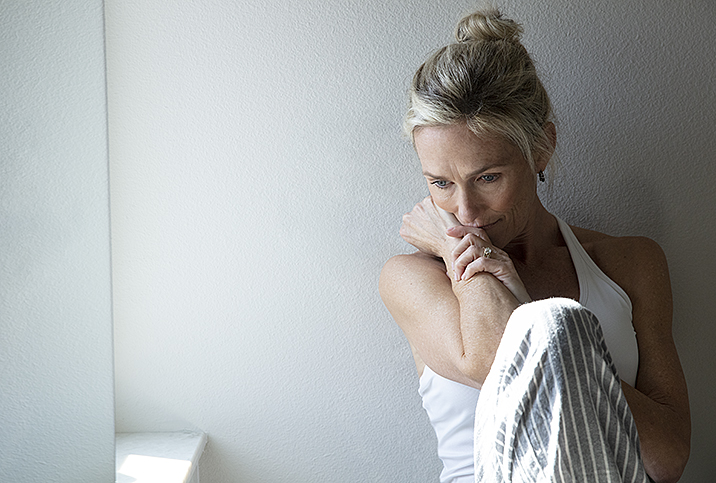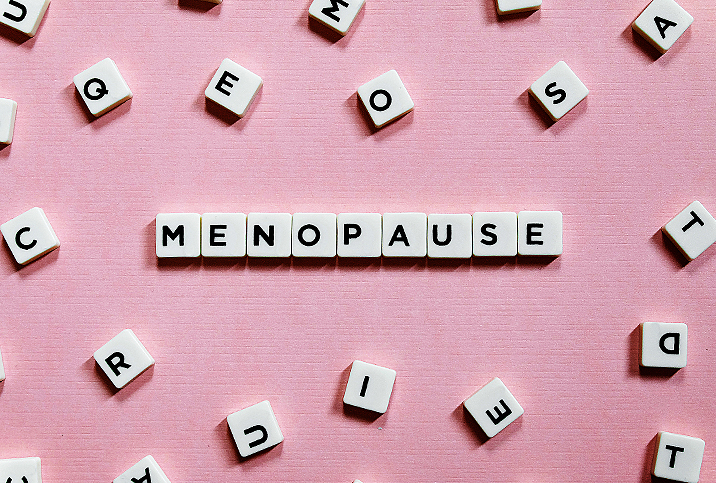Sex After Menopause

While in its most basic scientific form, sex might be meant solely for procreation, it is so much more than that: Sex is meant to be enjoyed. And while menopause might rid women of the burdens of menstruation—from cramps to bloating to breakouts—it can bring a whole new host of struggles, including changes to their vagina and libido.
A healthy sex life is still possible, however.
During menopause, women experience a thinning of the vaginal tissue and a change in vaginal pH, and this can lead to pain or discomfort during intercourse, known as dyspareunia. It’s a common symptom of menopause, with about 50 percent of women reporting some type of vaginal pain. The loss of estrogen and testosterone following menopause can also take the wind right out of your libido. Women may not be as easily aroused during foreplay, or may have no interest in sex at all.
While few women seek help, they have access to many simple ways to alleviate sexual wellness struggles during menopause.
Consider your options
Talk to your healthcare provider about options to help ease pain and increase your sex drive. Low doses of vaginal estrogen creams, tablets or rings have shown great promise in relieving vaginal discomfort, though the Mayo Clinic recommends discussing the risks of vaginal estrogen therapy with your doctor if you’ve had breast cancer.
Other options include over-the-counter vaginal moisturizers such as K-Y Liquibeads, which offer lubrication from the inside out. Replens Moisture Restore External Comfort Gel is a blend of moisturizers and vitamins that nourishes dry external vaginal skin with daily use. Hyaluronic acid has been used in skincare products for years to address dry skin and reduce the appearance of fine lines and wrinkles. Now, it’s the key ingredient in Revaree, a vaginal insert that reduces dryness.
Vaginal lubricants can also enhance enjoyment and make intercourse less painful. They are toy-friendly, as well, and can be used during self-pleasure or to spice things up with your partner. Research suggests that water-based vaginal moisturizers may offer benefits that last up to three days, while some women have also reported that they had to reapply a jelly lubricant during sex, which they described as a bit of a turnoff.
Natural remedies
For a more natural approach to vaginal atrophy and dryness, consider natural lubricants such as jojoba oil, coconut oil, aloe vera or vitamin E suppositories. Johns Hopkins University also recommends applying olive oil to external tissues to reduce vaginal dryness.
Lifestyle changes can also help relieve symptoms. Smoking, for example, can lower estrogen levels and increase the risk of vaginal atrophy—yet another reason to quit.
In addition, drinking plenty of water throughout the day can help maintain moisture balance, while regular exercise may aid hormone balance and combat dryness.
The bottom line
Engaging in regular sexual intercourse goes a long way toward keeping vaginal tissues healthy and lubricated. Or, if you’re single, masturbation works just as well and can certainly be fun. Remember, every journey begins with a single step. The most important task is to arrive at your destination.

















